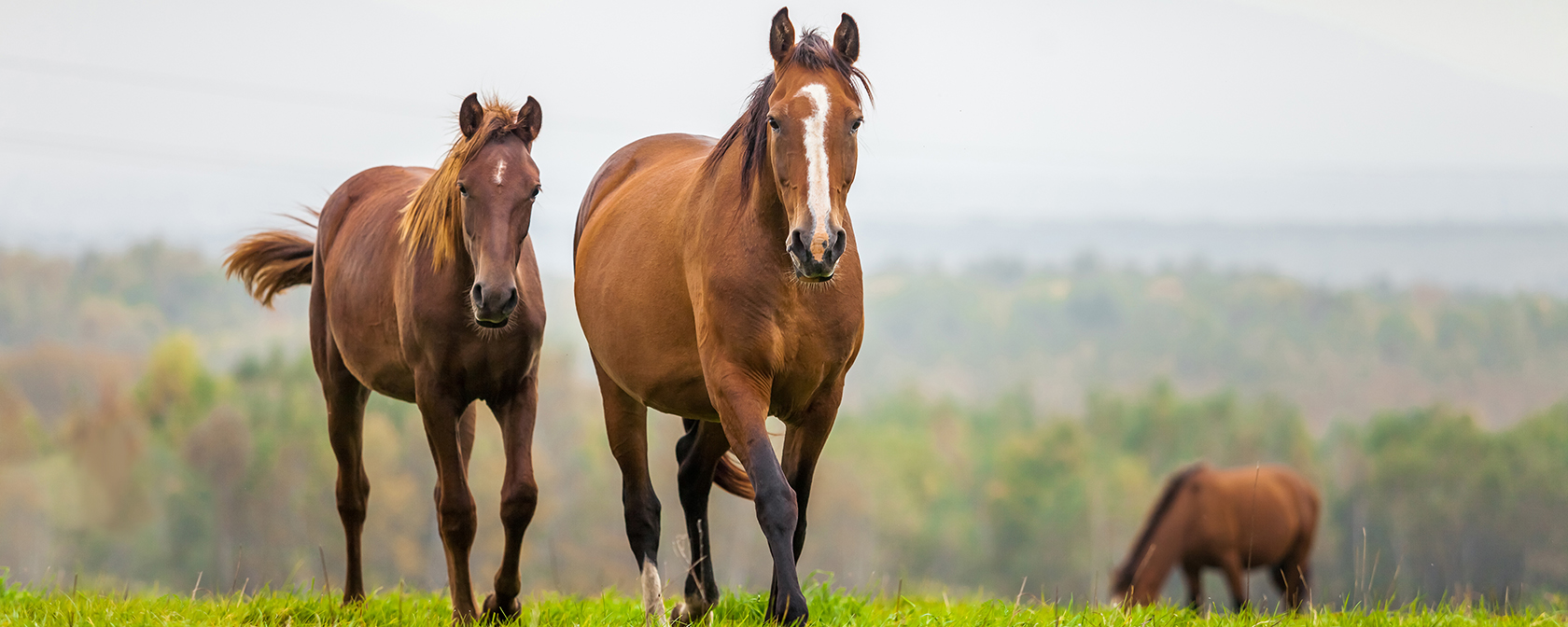By Sara Amundson and Kitty Block
Last Saturday, Americans tuned in to watch the Preakness Stakes, the second leg of thoroughbred horse racing’s Triple Crown. On the same day, the New York Times exposed horrific details of our country’s wild horses ending up at slaughter plants in other nations; Americans who had obtained these horses through an adoption incentives program run by the Bureau of Land Management had circumvented the adoption agreements and instead sold the horses at auction.
There’s a chilling contradiction in the way our country treats its horses: Fame and attention are heaped onto winning racehorses when, across the U.S., horses of all breeds, wild and domestic, including racehorses past their prime, wind up sold and slaughtered for their meat. Every single day, an average of one hundred U.S. horses ends up at slaughter. Last year alone, 37,249 U.S. horses were shipped to slaughter.
Throughout history, horses have stood by human beings as companions and partners. Horse slaughter is a total betrayal of this bond. But we have a chance to remedy this injustice: Today, the Save America’s Forgotten Equines (SAFE) Act, H.R.3355, was introduced in the U.S. House of Representatives by Reps. Jan Schakowsky, D-Ill., and Vern Buchanan, R-Fla. This federal bill brings hope, promising to forever prohibit the export of American horses to other nations for slaughter, shutting down the horse slaughter pipeline for good, while also ensuring that the horse slaughter trade can never return to the U.S. We worked with anti-slaughter coalition partners to encourage and support the sponsors’ introduction of the SAFE Act and will be campaigning for its passage.
This is the latest effort in our decades-long fight for at-risk horses. Before horse slaughter plants were shuttered in the U.S., our investigations team documented the inner workings of horse slaughter plants in Ohio and Texas; we’ve even tracked the fate of a former racehorse who ended up as meat. For years, we have persistently advocated for federal legislation to try to make sure that not a single U.S. horse suffers such a fate. And each year, we lobby to ensure that no taxpayer dollars are made available to re-open slaughterhouses in the U.S. The recent disturbing revelations about the BLM’s Adoption Incentive Program underscore our urgent need for a federal law to save these horses. The time to pass this legislation is now.
Today, the slaughter pipeline begins with at-risk horses who are sent to livestock auctions across the U.S. At these auctions, middlemen for foreign-owned slaughter plants, known as “kill buyers,” purchase healthy horses that they believe will bring the best price per pound. Kill buyers often bid against horse rescues and legitimate prospective owners, robbing these horses of a second chance at life. Sometimes kill buyers even pose as legitimate horse rescues or dealers and trick owners into believing their horses are going to be adopted, not sold into slaughter.
After being sold to kill buyers, these horses are trucked to Canada and Mexico where they are slaughtered for their meat. Many horses suffer terrible injuries during long distance transport. At the slaughter plant, horses rarely experience quick, painless deaths due to their anatomy and instinctual flight response to danger. When horse slaughter existed in the U.S. (it was shut down in 2007), the U.S. Department of Agriculture documented serious abuses, both in transport and at the slaughter plants. Conditions today at the slaughter plants abroad and during transport are similar. There is no way to make horse slaughter humane.
Horse slaughter also enables overbreeding and neglect by giving irresponsible breeders and owners an easy way to dump the horses they no longer use or want.
Thankfully, in the last several years, horse rescues, animal protection groups and the equestrian community have made amazing progress in rehoming horses and educating owners and breeders about the inhumane nature of horse slaughter. And numbers of horses exported for slaughter are also declining—including a 41.5% drop from 2019 to 2020.
Even one horse sent into this slaughter pipeline is too many. It is time to finally end this practice once and for all. The SAFE Act would ban the transport of at-risk horses across our borders and prevent the reemergence of horse slaughter facilities in the U.S. Until these measures are taken, horses who deserve a chance to be rehomed could still end up suffering the inherent abuse of the slaughter industry.
Kitty Block is President and CEO of the Humane Society of the United States.




